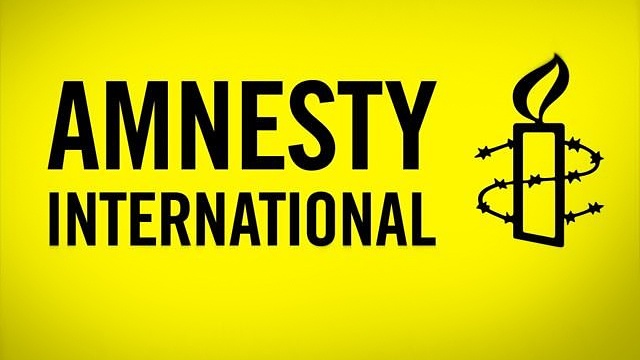Amnesty: COURT OF CASSATION UPHOLDS DEATH SENTENCE On 29 January, Bahrain’s Court of Cassation upheld the death sentence imposed against Maher Abbas Ahmad following a trial which relied on “confessions” extracted under torture. If the King ratifies his sentences, he will be at imminent risk of execution.
The death sentence against Maher Abbas Ahmad, also known as Maher al-Khabbaz, was upheld on 29 January by the Court of Cassation in Manama, the capital of Bahrain. It will be passed on to the King for final ratification. On 15 January 2017 three men were executed, six days after the Court of Cassation upheld their sentences.
On 11 May 2017, the High Court of Appeal upheld the death sentence imposed on Maher Abbas Ahmad; the life sentences on two men, including his brother; and the 10 year prison sentences against six others which also included two of his brothers, all involved in the same case. On 1 December 2015, the Court of Cassation had overturned Maher Abbas Ahmad’s death sentence on grounds that his “confessions may have been made under coercion” and sent the case back to the High Court of Appeal for review.
Maher Abbas Ahmad was first sentenced to death on 19 February 2014. He was charged with the premeditated murder of a police officer with explosive materials on 14 February 2013 while he attended a gathering in Sahla, on the outskirts of Manama. Maher Abbas Ahmad told his lawyer that he had been tortured during the first few days he was detained, while he was being interrogated. This included being beaten and threatened. During one hearing, he told the judge that he had been tortured, but no investigation is known to have been launched into his allegations. His lawyer complained that the court had accepted his “confession” as the main evidence against him, as well as the statements of some co-defendants who said they had “confessed” under duress, and testimonies of police officers called as witnesses. According to court documents, the judges said they would accept the defendants’ “confessions” because they believed the confessions were true and that the defendants had sustained their injuries, detailed in forensic reports, when they resisted arrest.
ADDITIONAL INFORMATION
Bahrain resumed executions on 15 January 2017, after a nearly seven-year hiatus. Following a grossly unfair trial, three men, Ali Abdulshaheed al-Sankis, Sami Mirza Mshaima’ and Abbas Jamil Taher Mhammad al-Samea, were executed on that day after their death sentences were confirmed by the Court of Cassation on 9 January. The speed at which the King of Bahrain ratified their death sentences and their executions were carried out was unprecedented in the country. Under Bahraini law, once a death sentence has been confirmed by the Court of Cassation the decision is sent to the King of Bahrain. The latter holds the authority to then ratify the sentence, commute it or grant a pardon. Prior to the 15 January executions, the last person executed in Bahrain was Bangladeshi national Jassim Abdulmanan in 2010.
Maher Abbas Ahmad (also Known as Mahez al-Khabbaz) was tried along with eight men which included three of his brothers. He was sentenced to death while two were sentenced to life imprisonment and the other six were sentenced to 10 years’ imprisonment.
In May 2014, the Chair Rapporteur of the Working Group on Arbitrary Detentions, the Special rapporteurs on the independence of judges and lawyers, on torture and other cruel inhuman or degrading treatment or punishment and on extrajudicial, summary or arbitrary executions, wrote to the Bahraini authorities in relation to the sentencing of Maher Abbas Ahmad and called for his conviction to be quashed and for his retria



 العربية
العربية